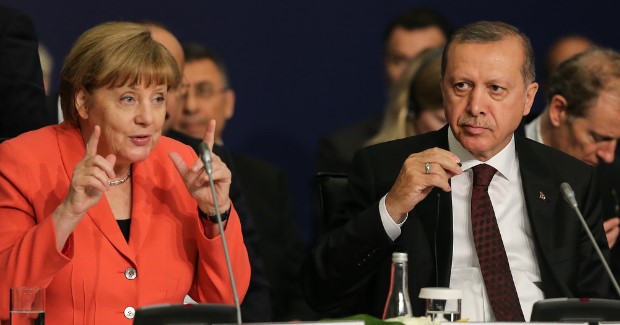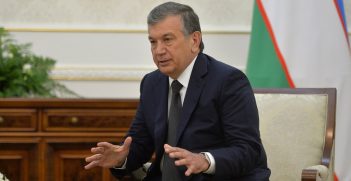A Bitter Pill: The EU-Turkey Refugee Deal

With Turkey still recovering from an attempted coup and the subsequent government crackdown, attention is turning towards the controversial refugee deal between the European Union and Turkey. As the situation deteriorates in Turkey, questions are beginning to be raised as to whether the deal will remain in place or whether Germany and the EU will seek alternative arrangements.
In March 2016, the European Union (EU) and Turkey struck an agreement to stem the flow of migrants to Western Europe from Syria. The refugee deal is crucial for both Germany and the EU to resolve the migrant crisis that continues to unfold in Western Europe. Turkey is also hoping that this deal will help facilitate its path towards full EU membership.
The deal means Turkey has agreed to provide temporary protection visas to migrants who reach Greece via Turkey. In exchange, the EU is giving Turkey economic compensation worth approximately 6 billion euros (AU$8.75 billion), as well as other political concessions. Turkey is also poised to receive visa-free travel for its citizens should it be successful in meeting the EU’s conditions of membership; an aspiration Turkey has held for 53 years.
However the EU has so far been unable to give specific guarantees on a timeline regarding visa liberalisation and Turkish President Recep Tayyip Erodogan has threatened to back out of the refugee deal if the EU does not hold up its end of the bargain.
Germany has become the epicentre for the refugee intake with thousands fleeing the battle-torn Syria. However, German Chancellor Angela Merkel and her government have come under increasing pressure by some sections of German society, including her own party, for having an open-door refugee policy.
Much of the concern relates to a numbers of recent events involving refugees including an axe attack on a train in Wuerzburg, the suicide bombing in Ansbach and the wave of sexual assaults in Cologne on New Year’s Eve. There are also concerns that an overwhelmingly large number of refugees would make the process of assimilation and integration a much harder exercise.
The deal with Turkey comes at a crucial time for Merkel and her administration with German elections to be held next year. Unfortunately Merkel is in a conundrum: by ignoring the deterioration of democratic freedoms and overall instability inside Turkey, Germany is forfeiting its responsibility towards the promotion and protection of democracy. However, if Germany and the EU refuse to appease Turkey, a diplomatic rift could potentially damage the deals in place and future cooperation.
Is the agreement under threat?
At this stage it appears the deal could be under threat of collapse. In response to the attempted coup, Turkey has issued a state of emergency which gives Erdogan and his administration substantially more powers to arrest and detain those suspected of being a part of the coup attempt.
Tens of thousands of soldiers, police, judges, teachers and civil servants have been detained or arrested so far in a harsh crackdown by Erdogan’s government. Turkey has also temporarily suspended the European Convention on Human Rights.
These events come at a time in Turkey when democratic freedoms are at a premium. According to Reporters Without Borders, Turkey is ranked 151 in the world in relation to press freedom. Since December 2014, 10 journalists have been jailed. This does not include other journalists who have been detained or threatened with imprisonment.
Despite some condemnation from the EU regarding Turkey’s treatment of the press and individuals critical of the government, Erdogan has repeatedly refused to accept requests from the EU for reform. Considering the recent flurry of terrorist attacks and the attempted coup, it is unlikely this will change in the near future.
While some elites within Germany and the EU have spoken up about Turkey’s treatment of the press and dissidents, Merkel and her administration have been relatively quiet. In fact, Germany’s posture towards Turkey has been relatively accommodating up until recently. In May, after political pressure from Turkey, Merkel agreed to allow charges to be laid against German comedian Jan Bohmermann for publishing a satirical poem on German television critical of Erdogan.
However, in recent weeks it appears that Merkel’s patience and tolerance is beginning to wear thin. In a bold and controversial move, Erdogan has indicated his intention to consider reinstating the death penalty in Turkey. Such a move would put the deal in serious doubt. In a personal phone call to Erdogan, Merkel argued the death penalty is “in no way compatible with the aim of EU membership”.
The official line from Berlin has been to treat the deal with Turkey separately from the coup and its aftermath but there are limits to Germany and the EU’s tolerance of Turkish authoritarianism.
It now appears that the deal is at a crossroads. If Erdogan decides to reinstate the death penalty and if Merkel’s rhetoric is taken seriously, it is likely that this will spell the end of the deal. Even if Erdogan does not reinstate the death penalty, Turkey’s recent harsh crackdown and path towards full autocracy could also put Germany and the EU in an untenable position.
In the end, Germany and the EU will have a tough decision to make: ignoring Turkey’s recent actions will likely damage the integrity of the EU and Germany, but if the refugee deal collapses it is likely that Western Europe will have another refugee crisis on its hands to contend with.
Right now, Turkey is Germany and the EU’s best option for resolving the refugee crisis. Whether they will swallow the proverbial bitter pill and accept Turkey given its current state of affairs remains a mystery.
Scott Young completed his undergraduate degree in counter-terrorism, security and intelligence at Edith Cowan University. He is now completing a Masters in International Relations at Curtin University in Western Australia. The article is published under a Creative Commons Licence and may be republished with attribution.





